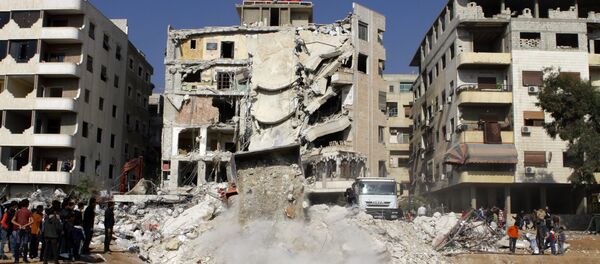Stratfor believes that there is always a chance that a "limited" confrontation could lead to an escalation and an eventual full-scale war between Hezbollah and Israel. That would be a disaster, considering the Middle East is already a hotbed of violence since the rise of Islamic extremism.
The whole thing began with the assassination of Kantar, who was killed in an alleged Israeli airstrike two days ago in the outskirts of Damascus. Although the Israel Defense Forces (IDF) didn't confirm the kill, Stratfor has strong reason to believe Israelis were behind the airstrike.
"The strike, which involved four long-range missiles targeting an apartment building and yielded minimal collateral damage, was well beyond the capability of the rebels," the Stratfor report said, adding that Israel also had plenty of motivation to kill Kantar.
According to Stratfor, currently Hezbollah doesn't want to have a full-blown conflict with Israel, especially considering that its troops are now fighting in Syria against Daesh (Islamic State) and other jihadist groups. The Lebanon-based group can't afford to stretch out its troops too much, as a wider military confrontation with Israel would do exactly that.
"Despite the promises of revenge, the militant group will calibrate any retaliation to avoid triggering a wider conflict with Israel," the US intelligence company explained.
At the same time, one of Hezbollah's long-term objectives has been to establish a credible level of deterrence that would make Israel think twice before attacking Hezbollah. The group has succeeded in in this, denying Israel the ability to attack Hezbollah at will.
That being said, after the assassination of Kantar, Hezbollah almost has to retaliate in order to maintain its recently achieved military credibility and not seem vulnerable in the eyes of Israelis, Stratfor said.
This leads us to a scenario in which Hezbollah would probably carry out a calibrated retaliatory attack against Israel. And at the end of the day, it's up to Israel to decide how to respond and whether it wants to take the conflict up a notch or two.



